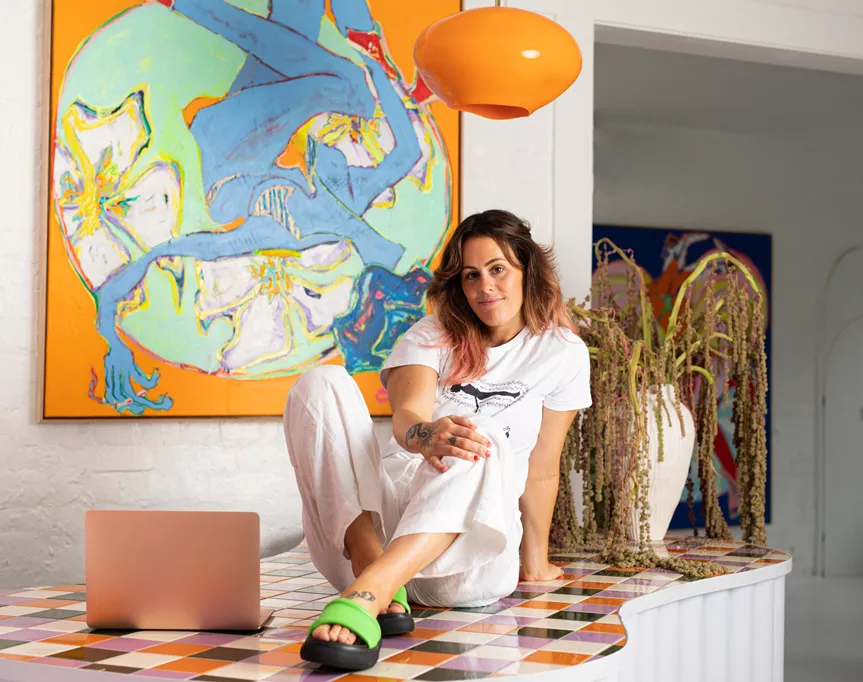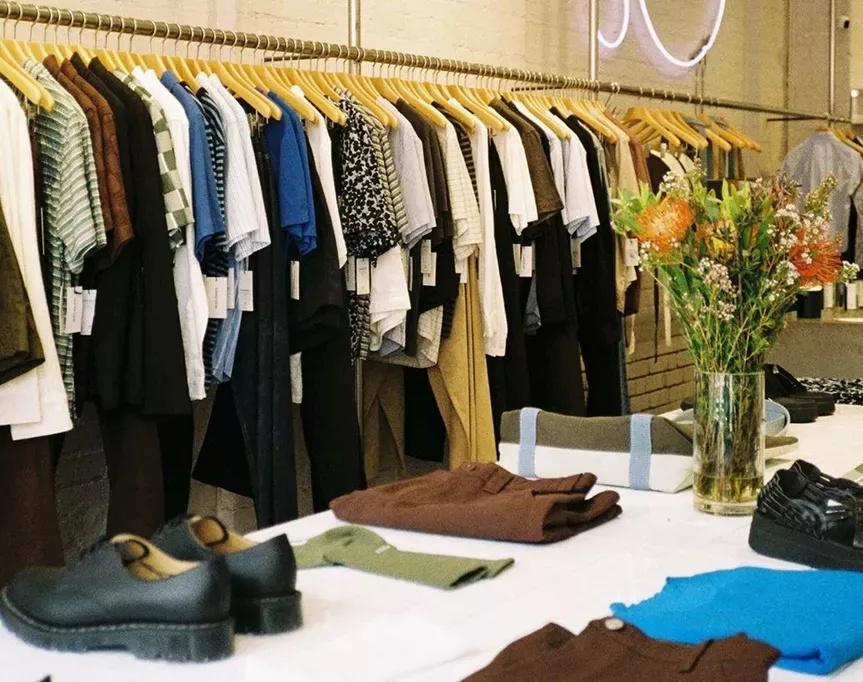how to spot and stop greenwashing
We caught up with a couple of experts to find out how to recognise scams about sustainability.
It’s hard not to feel a little bit guilty whenever we go through an impromptu online shopping binge, but hey – we’re only doing that stuff to cope with the seemingy endless climate disasters, relentless economic crises and even a century’s-old maritime disaster coming back into the zeitgeist (seriously, can we just leave the ocean alone?). But, as we all know deep down, these are only short-term solutions meekly fighting against the long-term, bottomless pit of existential despair.
More and more people are now deciding to avoid spending money on companies that are actively making things worse. But despite people’s best efforts, some businesses have developed a few shady tricks in order to cover up and wash away the true scope of their environmental impact. To accomplish this, they implement the tactic known as greenwashing. We asked a few experts to weigh in on the issue.
OUR EXPERT PANEL
Nadia Steele – Spokesperson of brand Biotuff
Louise Hyland – CEO of AMTA
Omar Sabré – Co-founder and creative director of Maison De Sabré
Karen Platt – Co-founder of CandleXChange
WHAT IS GREENWASHING? Greenwashing refers to the business tactic of misleading customers by promoting themselves as environmentally-friendly when they are not, according to Nadia Steele. She explains that consumers need to be “more educated than ever” in order to avoid falling victim to greenwashing and to ensure they support companies that “fit their needs and ethics”.
Louise Hyland says that businesses will often “make claims about reducing their impact, or their work being good for the environment to sell a product,” even though they aren’t really doing anything at all. In short: they lie about how much they help out our long-suffering planet.
WHAT TO LOOK OUT FOR More often than not, companies will slap a nice-sounding sticker on their products with phrases like ‘eco-friendly’ or ‘green’ without providing any evidence or proof to back up those buzzwords. Omar Sabré reckons these methods of manipulation are so effective because they “make the customer feel good,” which makes them much more likely to buy those products.
Karen Platt, who first co-founded CandleXChange in order to tackle the high level of waste that comes with enjoying candles and other scented products, says that businesses “may not intentionally be trying to mislead,” but they need to “go that one step further and educate consumers” on their genuine business practices. Karen goes on to say that the main way to stop greenwashing is for businesses to be transparent at the very least.
WHY IT’S SCARY Omar explains that greenwashing is so dangerous because “it sets us up for false expectations and false realities”. He specifically calls out the increased use of the term ‘vegan’ leather, arguing that it's been "plucked out of context," and that the petroleum-based materials don't biodegrade or break down at all. "They're all actually contributing to a much worse environmental situation," he says.
HOW TO ACTUALLY BE A GREEN BUSINESS Louise says that greenwashing is “everywhere” and that it’s “up to us to remain vigilant". But how can businesses actually implement sustainable practices? Well, using green energy and having environmental goals definitely helps, but it’s product stewardship that really packs a green punch. This refers to the lifecycle of a product, while “ensuring materials are recyclable” and “holding yourself accountable for targets and performance”.
WAYS TO KNOW IT’S LEGIT Logo identification plays a big factor in deciphering cryptic blanket statements, Nadia says, while checking out a business's website and labels can help to indicate precisely what they are doing (or not doing) to be sustainable. "Real sustainability will be showcased,” Nadia explains. “A genuinely sustainable business will have this at the core of its operations.”
WHY SUSTAINABILITY ROCKS Without mentioning the assurance of safety and the restoration of our fragile natural world, some companies might need a little extra persuasion to go greener. Karen says that now, more than ever, consumers are more inclined to support environmentally beneficial businesses. "There's no point in starting a business in this day and age without doing it sustainably,” she says. You’re able to build a home-grown business if you want, but there’s no reason not to benefit both consumers and the planet.
For more small-business stories like this, visit frankie.com.au/strictly-business, or sign up to our monthly e-newsletter. Have a small-business story you’d like to share? Pitch it to us.










.jpg&q=80&w=316&c=1&s=1)

















.jpg&q=80&w=316&c=1&s=1)










